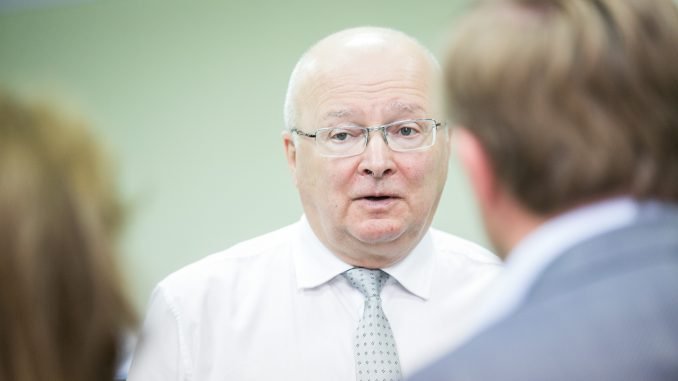
With the recent controversy where the Prime Minister Algirdas Butkevičius was asked by the Central Electoral Commission (VRK) to not appear in a live broadcast, further comments from related parties shed light on the circumstances behind the VRK’s controversial demand.
The Chairman of the VRK Zenonas Vaigauskas sees his organisation’s stance as being firmly rooted in state law, focusing on article 54 of the Seimas election law “The article rules that if an individual is a Seimas election candidate, he or she can only communicate through public media based on the premises set by the first article in the Seimas election law, if the candidate has to communicate something based on his or her office. But this should be done by organising press conferences.” Vaigauskas highlights the principle of impartiality, pointing out that no matter if a candidate is already in office, they should not be given any extra opportunities to express themselves over other candidates. He also noted that the guidelines have existed since 1994 with no previous issues arising in this regard.
Other parties are unconvinced by such an uncompromising application of said legal principles with Seimas member and jurist Stasys Šedbaras and the Chairman of the Journalists Union Dainius Radzevičius focusing on the factor of interacting laws as well as simple common sense. Šedbaras notes that two legal values clash in the situation – electoral order and the rights based on the public information law, which is derived from the Constitution. He believes that it is of no concern that there were no previous issues with the legal base surrounding elections and agitation, thus such a clash is actually a good opportunity to make improvements on the law and since you cannot write a law for every single situation, common sense should guide the way here. Radzevičius similarly points out that the principles of freedom of speech clash with the electoral law and need revising, albeit likely only after this election, concluding that “I believe that now, after all that has happened, it is necessary to operate based on common sense and journalists should continue doing their work.”

Be the first to comment